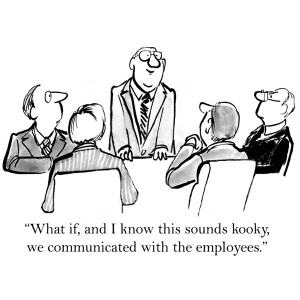Posted by Adam Thompson on the 19th July 2016
Are you, in one form or another, a General Manager of Operations? In the US you might be VP Operations. Either way, if you are in an Executive role, and you have any accountability for delivering the products and services to your customers…then you might be interested in giving this a shot…
Wander over to your friends (or enemies) in the Marketing area and ask for a copy of every current advertisement and promotion that’s out there. In particular, anything with a sentence, ideally, advertisements by video or radio.
Now call an all-hands meeting with everyone in the Operations area, and play the ads. That’s right…play the videos, run the radio ads, big screen, loud speakers….and have everyone in groups note down their understanding of what is being promised to people should they become a customer.
Then point this out – these promises are operational requirements. They aren’t optional extras, they aren’t arguments to be used to show how unreasonable the Marketing department is….these are the dead-set requirements that Operations is being asked to deliver. And even better, deliver within a certain budget.
To not do so is to break a promise that the organisation has made, either to customers if you don’t deliver or deliver and charge too much, or to owners if you deliver as expected at a loss.
Now ask the room to discuss what needs to be different in order to deliver that promise with the budget given.
Watch closely which people choose to take on this challenge, and which choose to use their capability to avoid it. Avoiding won’t look obvious, it will take the form of very rational reasons why what is being asked just isn’t possible. You’ll be tempted to agree.
But it’s still avoiding.
Don’t get angry or frustrated because do you know where it comes from? From the messages that people have been sent for years by the very way the organisation is designed and run.
What you’ve now got is the need for genuine dialogue about what everyone is experiencing. Which requires you to listen, then listen, then listen.
And this might be the hardest work you do all year.



